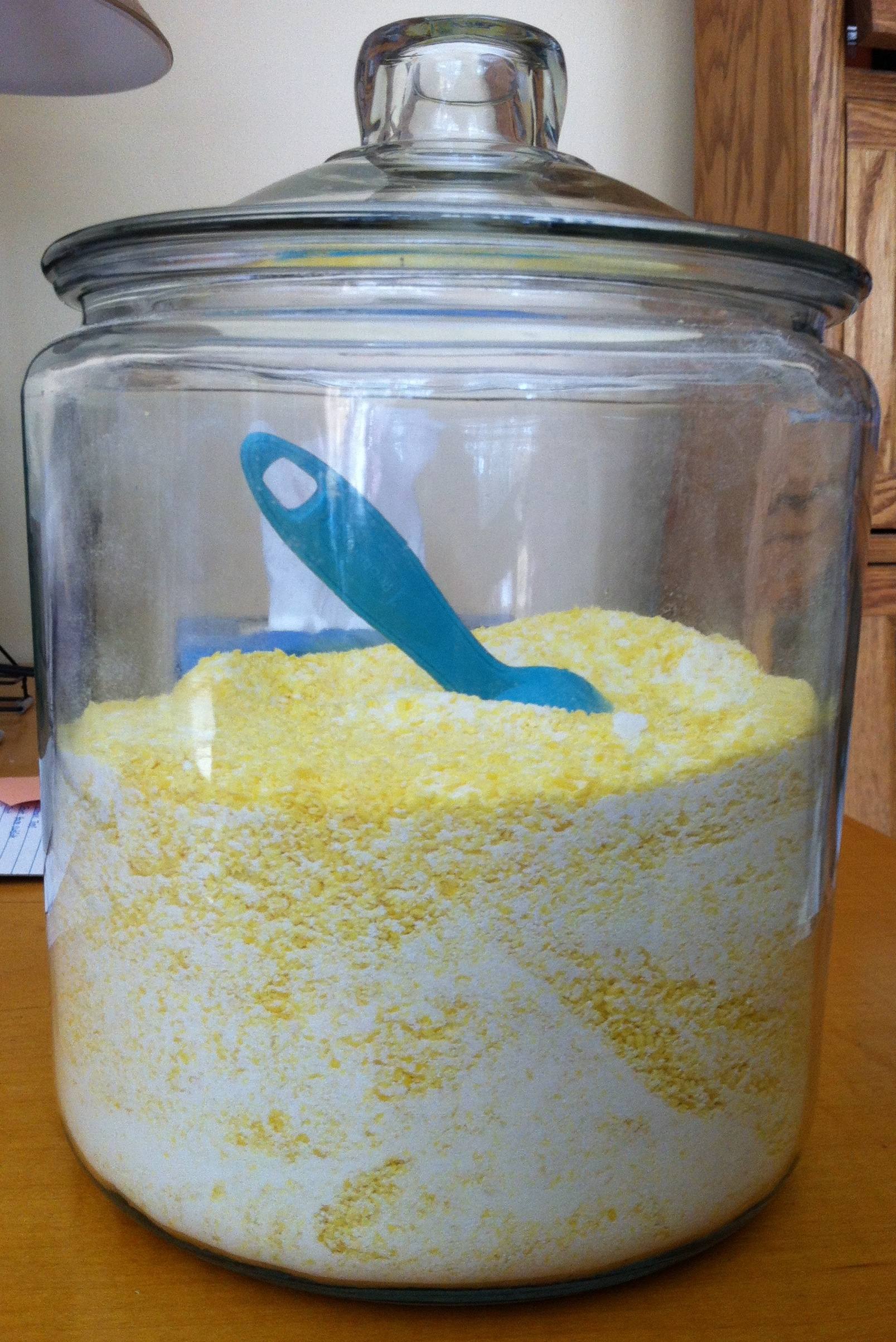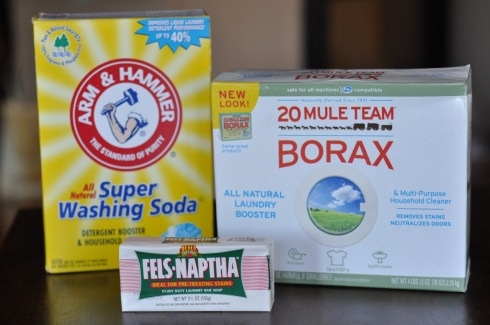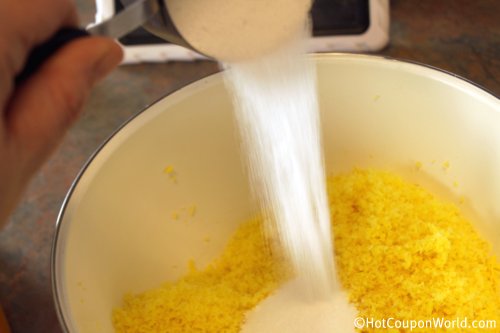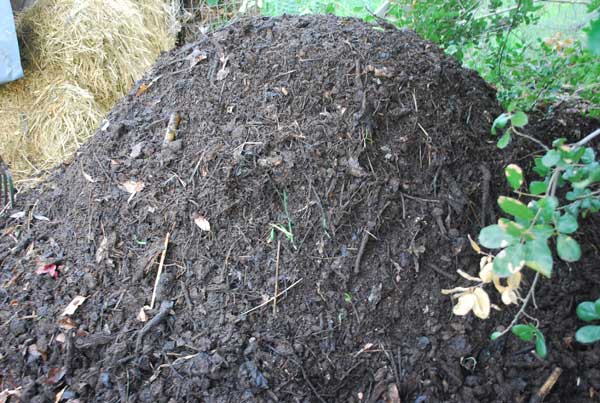*Gasp*!!!!! What?!

I have researched and researched to find you guys the best possible recipes there are. And as a bonus. . . I have options for you. :) So, whether you're a powdered or liquid detergent type person. Check out below to see if one here will fit your needs.
1/2c-1c per load
This one of the most popular versions that I was able to find.
Ingredients:
1 bar Fels Naptha (or other soap) grated
1 cup Borax
1 cup Washing Soda
5 gal water
Large canister(5 gallon bucket)
Instructions:
1. Boil 6 cups of water on the stove. Turn heat down and add grated soap gradually. Stir until all of the soap has been dissolved into the water. (Do NOT let water boil while soap is in it.)
2. Pour hot soapy water into your canister. Add the Borax and Washing Soda and additional 6 cups warm water. Stir until dissolved.
3. Add remaining amount of water. Stir until it is thoroughly mixed.
4. Put lid on container and let sit for 24 hours.
5. After this time it should be "set."
***Look for tips at the bottom of the page***

Homemade Liquid Detergent #2
1/2c-1c per load
This recipe popped up at the last minute and I decided variety and options are always a good thing.
Ingredients:
2 Tbsp liquid dish soap (i.e. Dawn)
3 Tbsp Borax
3 Tbsp Washing Soda
1 Gal Water
Gal sized container
Instructions:
1. Add the Borax and Washing soda to the container.
2. Pour in a small amount of boiling/extremely hot water. Swirl until borax and soda are dissolved completely.
3. Add in the dish soap.
4. Fill the container the rest of the way with cool water.
Homemade Powdered Detergent
1Tbsp - 3Tbsp per load (yes that says Tbsp)
This is the only recipe I was able to find, worth anything, for powdered detergent.
Ingredients:
1 bar Fels Naptha grated
2 cup Borax
2 cup Washing Soda
Container
1. Mix all ingredients together and put in container.

Well that one was ridiculously easy. But one thing that is not easy is grating soap, so below I have some tips on how to complete that successfully(because who wants to do something difficult?) and some other handy tricks for making your laundry efforts. . . effortless.
 *** TIPS***
*** TIPS***- These recipes call for Fels Naptha soap. It can be found in the laundry isle near the washing soda and borax. However, you can use whichever type of soap you prefer. There's several different kinds, I would not recommend using one with a moisturizer though, they tend to leave a residue on your clothes and machines.
- There are a couple different ways to grate the soap. You can A.) Use a cheese grater. B.) Cut into smaller chunks and put in a food processor or my favorite C.) Cut into smaller chunks and microwave for a minute. It will puff up and just crush into fine particles beneath your fingers.
- Most of these ingredients can be found in your laundry isle at your nearest super market however.
- To me 5 gallons of liquid detergent is seems a bit much so I cut the recipe down to 1 gal and divide the other ingredients accordingly, this is where individual preferences come in.
- Yes, these are all natural ingredients so these detergents are safe for HE washers. At least, no one has said otherwise.
- The powdered detergent should have no problem dissolving in cold water washes. If you have a problem though, add the detergent to your machine first with a little bit of hot water to dissolve it then add your clothes and cold water.
- Adding a small amount of vinegar(1/4c-1/2c) to your rinse cycle with neutralize any remaining detergent so there is absolutely no chance of residue and will help keep your washer from getting that "funk" smell that machines tend to get occasionally
- Most people with skin sensitivities are able to use these recipes because there are no extra additives or perfumes. If still receiving a small reaction, try the vinegar tip above.
- You can still use your stain boosters/removers for particularly tough stains just like you would with any other detergent. I would suggest trying baking soda as a more natural substitute to all the chemicals.
So, there you have it my homemaking mommas (and dads.) DIY Homemade Laundry Detergent. All the benefits of store bought detergent (clean clothes) with less money spent and less chemicals exposed to your family.
Give it a try. Let us know below in the comments how your experiences have went or if you have any of your own tricks!
Sign up for my newsletter to get more Homemade advice and tips!!
|
||||

